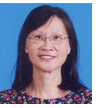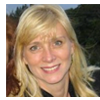More on Portfolio Theory
“Those that know, do. Those that understand, teach.” Aristotle
 In recent columns I have advocated a portfolio approach to evaluating the educational attainment of learners. Test scores can be one component of the portfolio, but there needs to be more, perhaps much more. How many of you have seen grade A test scores from students whom you believe really do not know the material tested? By ‘knowing’ the material, I mean going beyond rote memorization and ‘pattern recognition’ in STEM courses, where once the pattern is recognized as “algorithm 62”, the student only needs to fill in the numbers for algorithm 62 and ‘turn the crank.’ In math and other STEM classes, good test taking is often reduced to this – memorization and pattern recognition. And if you asked the student similar questions a couple of weeks later, how likely is it that he/she would still get an A grade? Read more. In recent columns I have advocated a portfolio approach to evaluating the educational attainment of learners. Test scores can be one component of the portfolio, but there needs to be more, perhaps much more. How many of you have seen grade A test scores from students whom you believe really do not know the material tested? By ‘knowing’ the material, I mean going beyond rote memorization and ‘pattern recognition’ in STEM courses, where once the pattern is recognized as “algorithm 62”, the student only needs to fill in the numbers for algorithm 62 and ‘turn the crank.’ In math and other STEM classes, good test taking is often reduced to this – memorization and pattern recognition. And if you asked the student similar questions a couple of weeks later, how likely is it that he/she would still get an A grade? Read more.
Less Arithmetic and More Real Math
 Richard Larson's caution in the last STEM Pals newsletter against schools training students to be "test-taking machines" is very timely, especially with the current emphasis on Tiger Moms and Dragon Dads. The issue of focused, deep study and accomplishments in a student's area of interest needs to be addressed. As a Math teacher in Malaysia, I see so much mindless repetition of drilling in math questions in order to ensure that students are ready for public exams, all factory-produced to score the all important "A". There is so much emphasis on the "how", that math teachers have sacrificed the "why" of Mathematics. Read more. Richard Larson's caution in the last STEM Pals newsletter against schools training students to be "test-taking machines" is very timely, especially with the current emphasis on Tiger Moms and Dragon Dads. The issue of focused, deep study and accomplishments in a student's area of interest needs to be addressed. As a Math teacher in Malaysia, I see so much mindless repetition of drilling in math questions in order to ensure that students are ready for public exams, all factory-produced to score the all important "A". There is so much emphasis on the "how", that math teachers have sacrificed the "why" of Mathematics. Read more. |
 |
More Than Just STEM
 STEM started with the idea that its four elements – science, technology, engineering and math – should not be taught as separate towers but rather taught to show how they work together to support each other. (I started out as a math major in college but in my sophomore year I found that I was learning more math through my physics classes and switched majors.) Read more. STEM started with the idea that its four elements – science, technology, engineering and math – should not be taught as separate towers but rather taught to show how they work together to support each other. (I started out as a math major in college but in my sophomore year I found that I was learning more math through my physics classes and switched majors.) Read more.
State High School Science & Engineering Fair Celebrates the Power of Inquiry
 The Johnson Athletics Center buzzed with excitement on May 4th and 5th, as hundreds of students from towns across the Commonwealth gathered to exhibit their science projects at the Massachusetts State High School Science & Engineering Fair. MIT has donated space for the event every year since the founding of the Massachusetts State Science & Engineering Fair (MSSEF) in 1949. Read more. The Johnson Athletics Center buzzed with excitement on May 4th and 5th, as hundreds of students from towns across the Commonwealth gathered to exhibit their science projects at the Massachusetts State High School Science & Engineering Fair. MIT has donated space for the event every year since the founding of the Massachusetts State Science & Engineering Fair (MSSEF) in 1949. Read more.
Reviewers Wanted For Next Generation Of Science Standards
 In March, I listed 10 things you need to know about the Next Generation of Science Standards (NGSS). Now you have the opportunity to learn more about the NGSS while letting your comments be heard. On this past Friday, May 11 Achieve, Inc. released the first public draft of the Next Generation Science Standards (NGSS) and seeks your thoughts and opinions about them. Read more. In March, I listed 10 things you need to know about the Next Generation of Science Standards (NGSS). Now you have the opportunity to learn more about the NGSS while letting your comments be heard. On this past Friday, May 11 Achieve, Inc. released the first public draft of the Next Generation Science Standards (NGSS) and seeks your thoughts and opinions about them. Read more. |